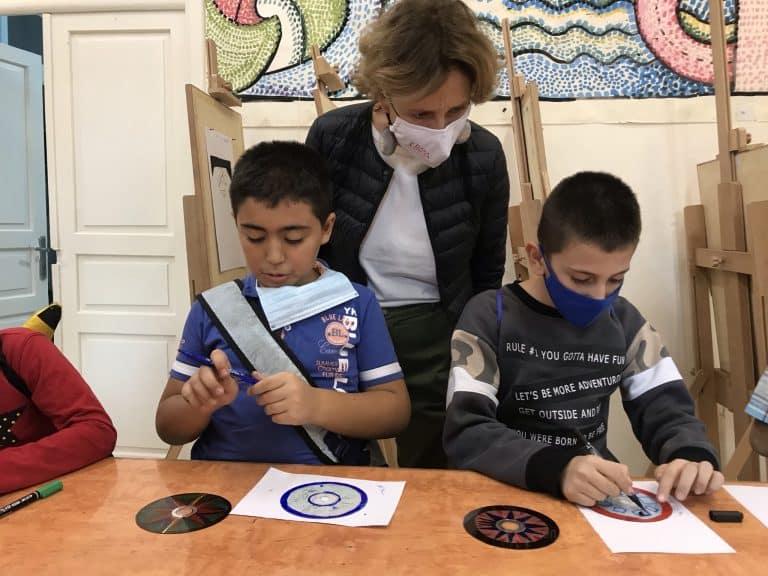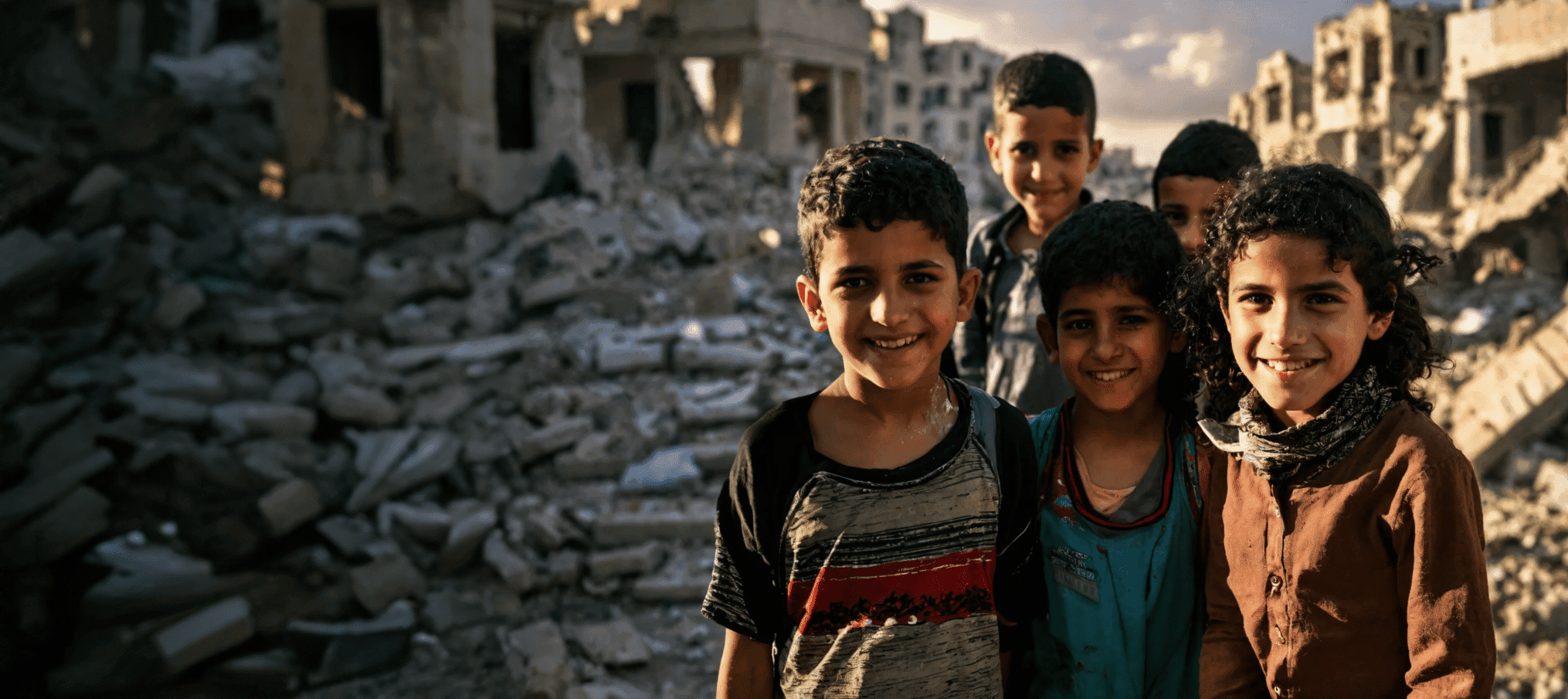Tommaso and Guendalina's trip to Syria - Part 2
Colours
"It is important to let people know what is enduring in Syria," Guendalina continues. "Like Father Raimondo's kindergarten in Damascus". Pro Terra Sancta has financed various initiatives at the church where Father Ramon is now; there is a hospital for the terminally ill, a music school and a kindergarten.
The photos flow: they are those of smiling children, mothers, grandmothers under the burqa, under the hijab, framed, without a veil, by raven hair above beautiful deep, dark eyes. They are colourful, very colourful photos. "It always amazes me a little,' says Guendalina, 'to see so many colours: they look like very normal classes, like we have here in Italy. But this is the point. I would like a video to be made, a video of what the child encounters to get here, among these colours, in this clean space. A video that tells the story of when they walk down the street, in the dirt and debris, of the house they live in, of the place where they live". She smiles, 'but listen to how these play!' she says showing a video of a young boy at the piano.
Syria is fighting...
This is the Syria we are talking about: a Syria that makes less noise than the bombs, and that grows in silence, in the midst of hell. Like the sanctuary of St Ananias, which Father Firas, helped by Pro Terra Sancta, is trying to transform into a home for the Christian community of Aleppo. "In Aleppo there are real martyrs," says Guendalina showing the photo of the tomb of one of them. The war has really affected Christian priests in Syria closely: 'in 2015, following an armistice, some jihadists were transferred from northern Syria to other areas by school buses provided by the Syrian government. Because they were afraid of attacks along the way, they decided to keep Christian priests on board with them during the trip. And so they found themselves travelling by bus with armed jihadists'.
... and Aleppo comes to the rescue
But there is also a Syria that choses dialogue and enrichment. It is again Father Firas who is the protagonist of this culture of encounter: the Franciscan involved Binan, a Muslim woman, a university graduate, to set up, starting in 2016, the Franciscan Care Center (FCC) and the project "A name a future".
Today, the FCC assists hundreds and hundreds of children who are left alone. Within it, the Franciscan friars of the Custody of the Holy Land take care of orphans, lonely and forgotten children growing up in the material and moral ruins of a Syria worn out and tired by war. It is in East Aleppo, the area of the city that has suffered the greatest devastation, that this space tries to withstand the impact of poverty and despair, offering psychological support and ensuring a permanent and safe presence. Even this is enough, where everything has been devoured by flames and bombs.
Within the project "A name and a future", instead, Binan and other volunteers coordinated by her and Father Firas teach reading and writing to dozens of Islamic women. "You should see the classes, they are very crowded", says Guendalina, still scrolling through the photos, "there are many of them, and they all come from Sunni families". The black veils covering the women's faces form a strange harmony with the vivid and varied colours of the desks, the walls, the drawings. But perhaps Syria is all here, in a complicated and yet very fine symphony, struggling to assert itself, and pushing to find a space.
A last smile
"We have a network of more than one hundred and fifty volunteers down in Aleppo, which means assistance for a thousand people and more". And then, along with Firas, there is Father Ibrahim. He runs a parish in Aleppo, unique in its dynamism. "He is an extremely charismatic man. He opens the gates of his parish to all the children of the Christian community and offers them lunch. It's always more than 700 burgers and fries, hand-wrapped by the oratory volunteers'.
The last photo that flows under Guendalina's hands is that of a smiling child, behind his portion of fries, next to many others of his age, among a thousand bright colours. It seems, after all, that no war has passed through here; that, after all, the horrors of a conflict such as the one Syria is going through can really vanish behind those smiling eyes once again.


















